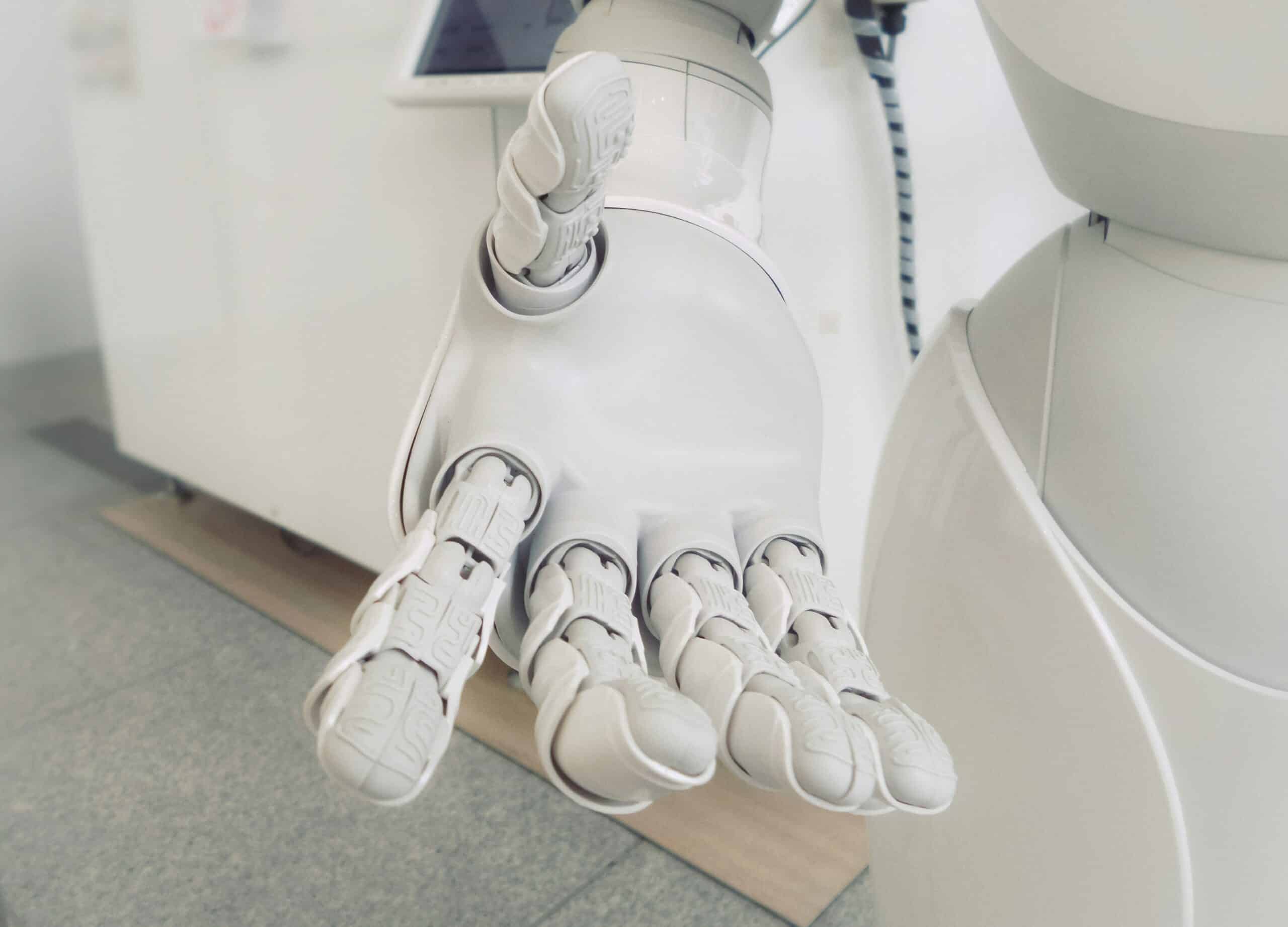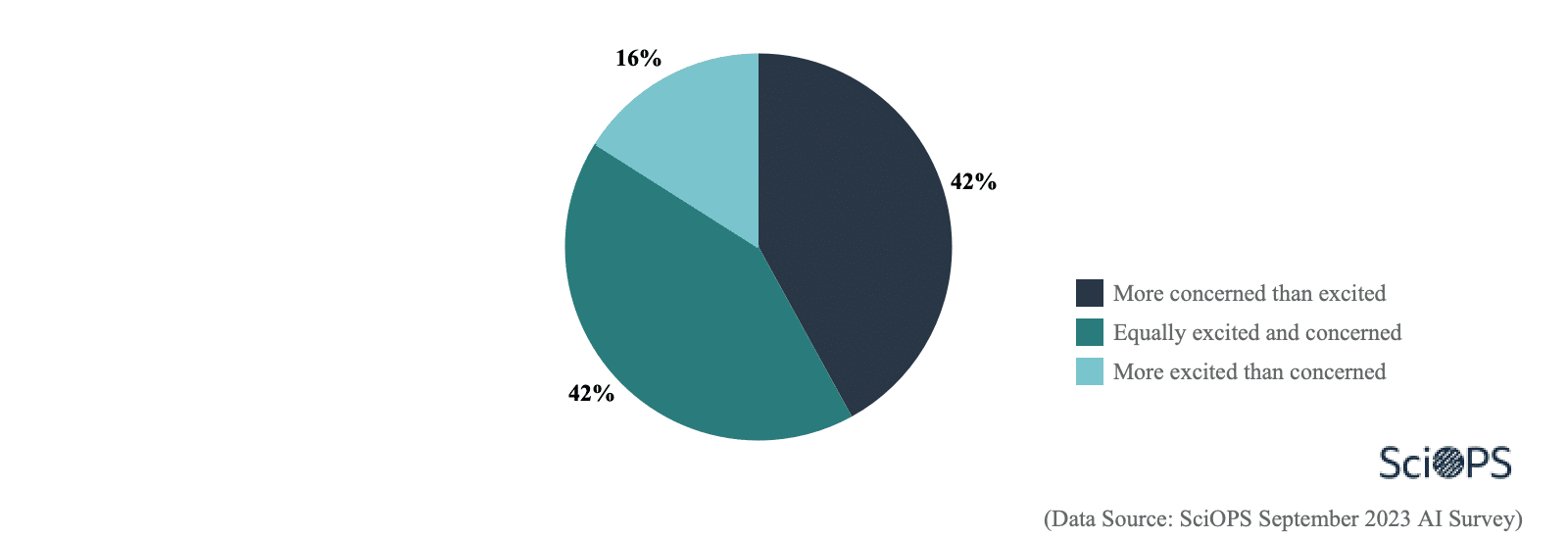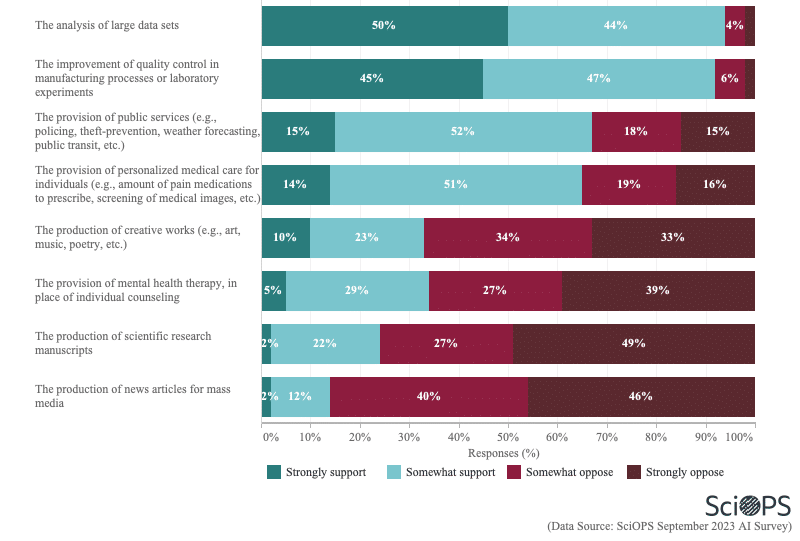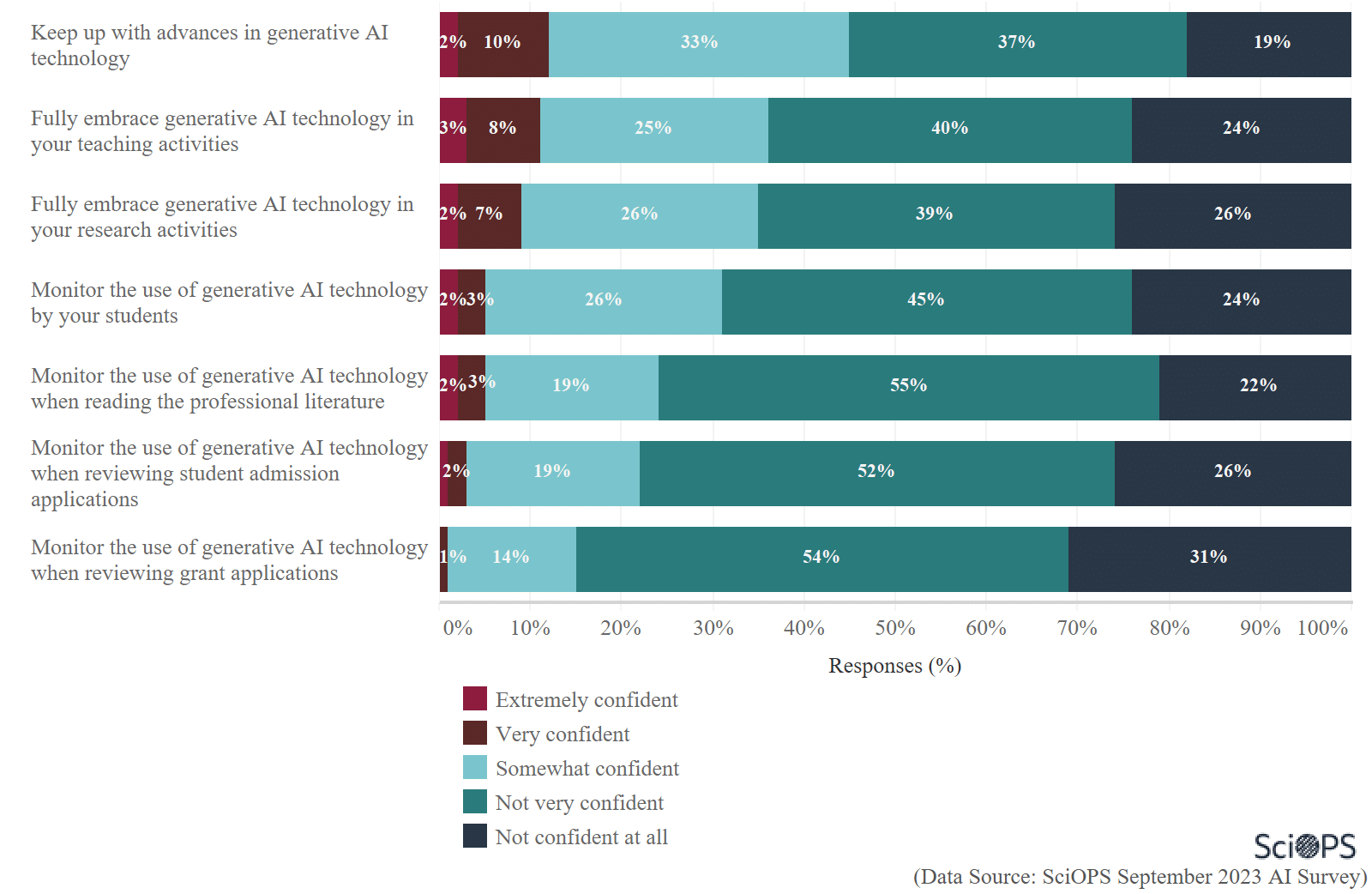
Artificial Intelligence Survey
Scientists’ Perceptions and Personal Use
Section 01
Survey Overview and Demographics
General Overview
Study Date: 29.09.23–04.11.23
Geographic Coverage: United States
Expertise:
- 25% Biology
- 22.9% Civil and Environmental Engineering
- 14% Geography
- 8.5% Public Health
- 16.1% Chemistry
- 13.6% Computer and Information Science
Response Overview
Sample Size: 777
Valid Responses: 232
Response Rate: 29.9
Date initial findings posted: 12.12.23
Most recent update: 12.12.23
Days survey in field: 37
Average response time: 7.4
Survey Demographics
Respondent Demographics:
- 35.2% Female
- 64.4% Male
- 100% Academic
- 0% Industry
Language(s): English
Section Overview
This section reports on scientists’ perceptions about generative artificial intelligence (AI) and its impacts. It also reports on scientists personal use of generative AI and their confidence in managing it.
Question
Thinking about the next few years, how much do you think each of the following will change the way we live in the United States? (N=232)
Finding
The top 3 issues that scientists reported would change life in the US a lot or somewhat over the next few years are political polarization (93%), artificial intelligence (92%), and climate change (88%). A majority of scientists also believe the spread of infectious diseases (77%), global conflicts (78%), and resource scarcity (72%) will change our lives.
Question
Does the increased use of generative AI in daily life make you feel______? (N=232)

Finding
An equal percentage of scientists (42%) are “more concerned than excited” and “equally excited and concerned” about the increased use of AI in daily life. The remaining 16% of scientists are more excited than concerned about the increased use of generative AI.
Question
How concerned are you about the following potential threats that may be posed by artificial intelligence? (N=232)
Finding
Nearly three-quarters (78%) of scientists are very or extremely concerned about the threat AI poses to misinformation. At least half are also very or extremely concerned about over-reliance on artificial intelligence (60%), the threat AI poses to cyber security (51%) and the influence of AI on loss of creativity (50%). Considerably fewer (23%) are very or extremely concerned about the effect of AI on job loss.
Question
How much do you support or oppose using generative AI for each of the following purposes? (N=228)

Finding
A large majority of scientists strongly or somewhat support using generative AI for the analysis of large data sets (94%) and for the improvement of quality control in manufacturing processes or laboratory experiments (92%). More than half of all scientists also strongly or somewhat support using generative AI for the provision of public services (67%) and the provision of personalized medical care (55%).
In contrast, most scientists (86%) strongly or somewhat oppose using generative AI for the production of news articles for mass media and for the production of scientific research manuscripts (76%). Two thirds also strongly or somewhat oppose using generative AI for the production of creative works (67%) and the provision of mental health therapy (66%).
Question
Have you personally ever used any generative AI systems (e.g., ChatGPT, Bard, Stable Diffusion, Midjourney, DALL-E)? (N=228)

Finding
Most scientists (65%) have used a generative AI product (e.g., ChatGPT, Bard, Stable Diffusion, Midjourney, DALL-E).
Question
How confident are you of your ability to________? (N=225)

Finding
Scientists reported varying levels of confidence in their ability to manage different aspects of AI technology. Just less than half (45%) are extremely, very or somewhat confident they can keep up with advances in generative AI technology. Around one-third of scientists expressed a similar level of confidence in fully embracing generative AI technology in teaching (36%) and research activities (35%).
However, the majority indicated that they were not at all or not very confident in monitoring the use of generative AI technology during the review of grant applications (85%), student admission applications (78%), or when reading professional literature (77%). Additionally, most scientists lacked confidence in overseeing student use of generative AI technology (69%).
This national survey of academic scientists in the US was conducted by the Center for Science, Technology and Environmental Policy Studies (CSTEPS) at Arizona State University. The survey was approved by the Institutional Review Boards at Arizona State University.
The sample for this survey was selected from our SciOPS panel. The SciOPS panel was recruited from a random sample of PhD-level faculty in six fields of science. Contact information of faculty in the fields of biology, geography, civil and environmental engineering, chemistry, and computer and information science and engineering was collected from randomly selected Carnegie-designated Research Extensive and Intensive (R1) universities in the United States (US).
Contact information for academic scientists, social scientists and engineers in the field of public health was collected from all Council on Education for Public Health (CEPH) accredited public health schools. The full sample frame for recruiting the SciOPS panel includes contact information for 18,505 faculty members of which 1,366 agreed to join the SciOPS panel. This represents an AAPOR recruitment rate (RECR) of 7.5% (RR4).
Sample weighting and precision: The sample of respondents for this survey was weighted by the inverse of selection probabilities and post-stratified probabilities by gender, academic fields, and academic ranks to represent the full sample frame for recruiting SciOPS panel members as closely as possible. A conservative measure of sampling error for questions answered by the sample of respondents is plus or minus 6 percentage points.
